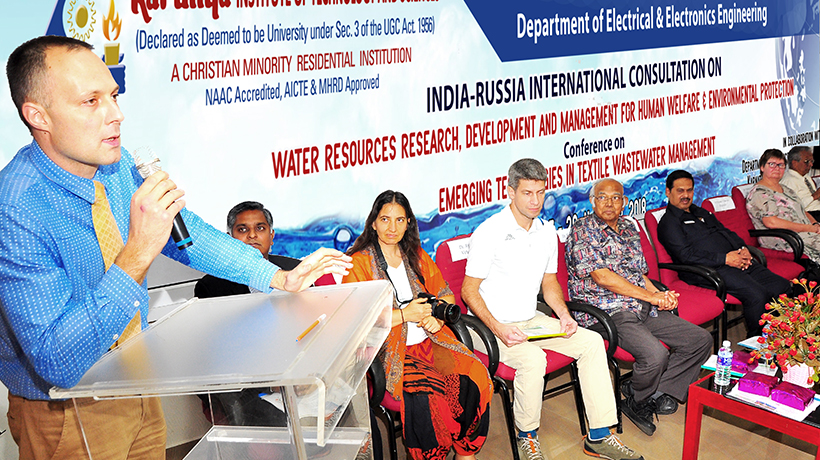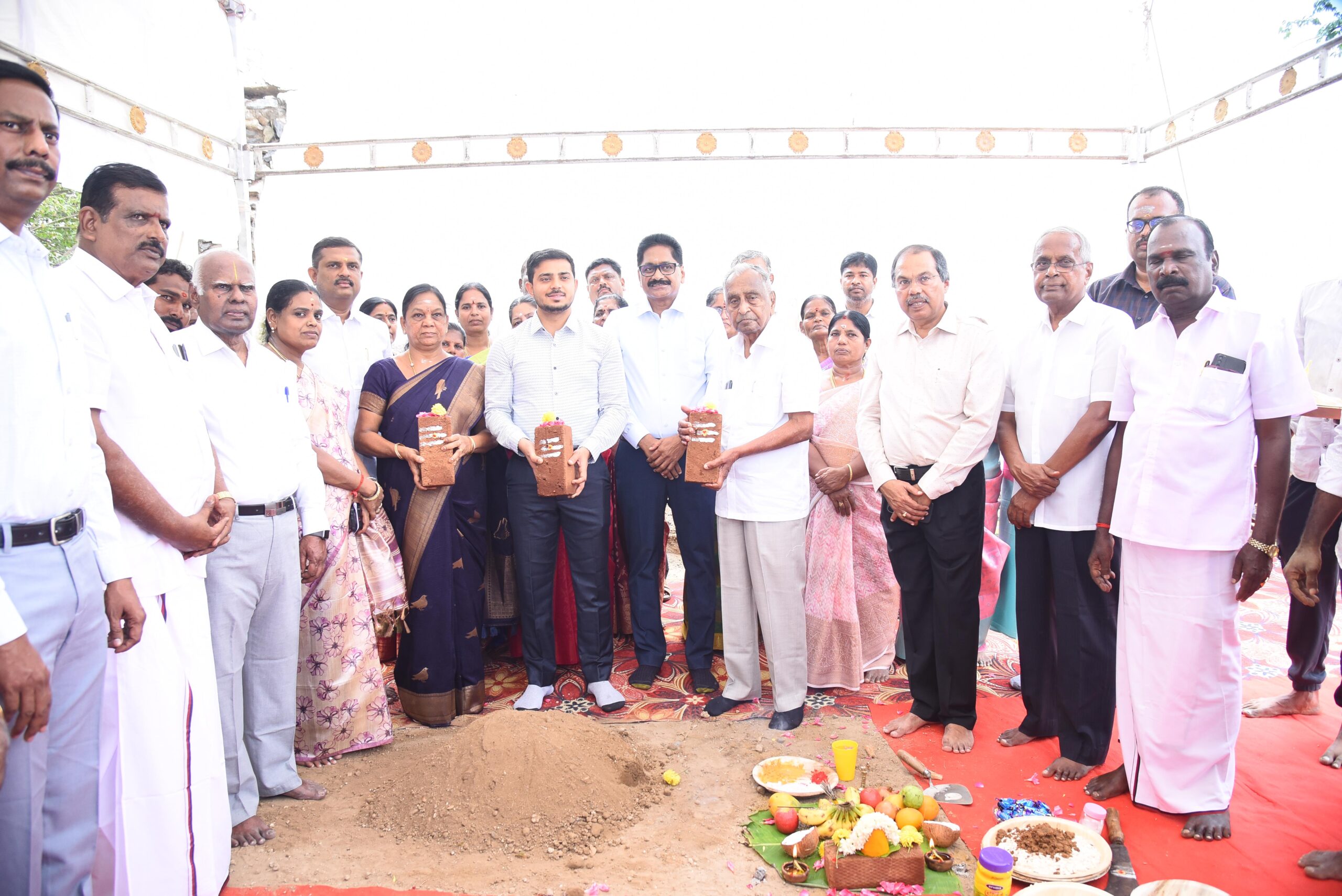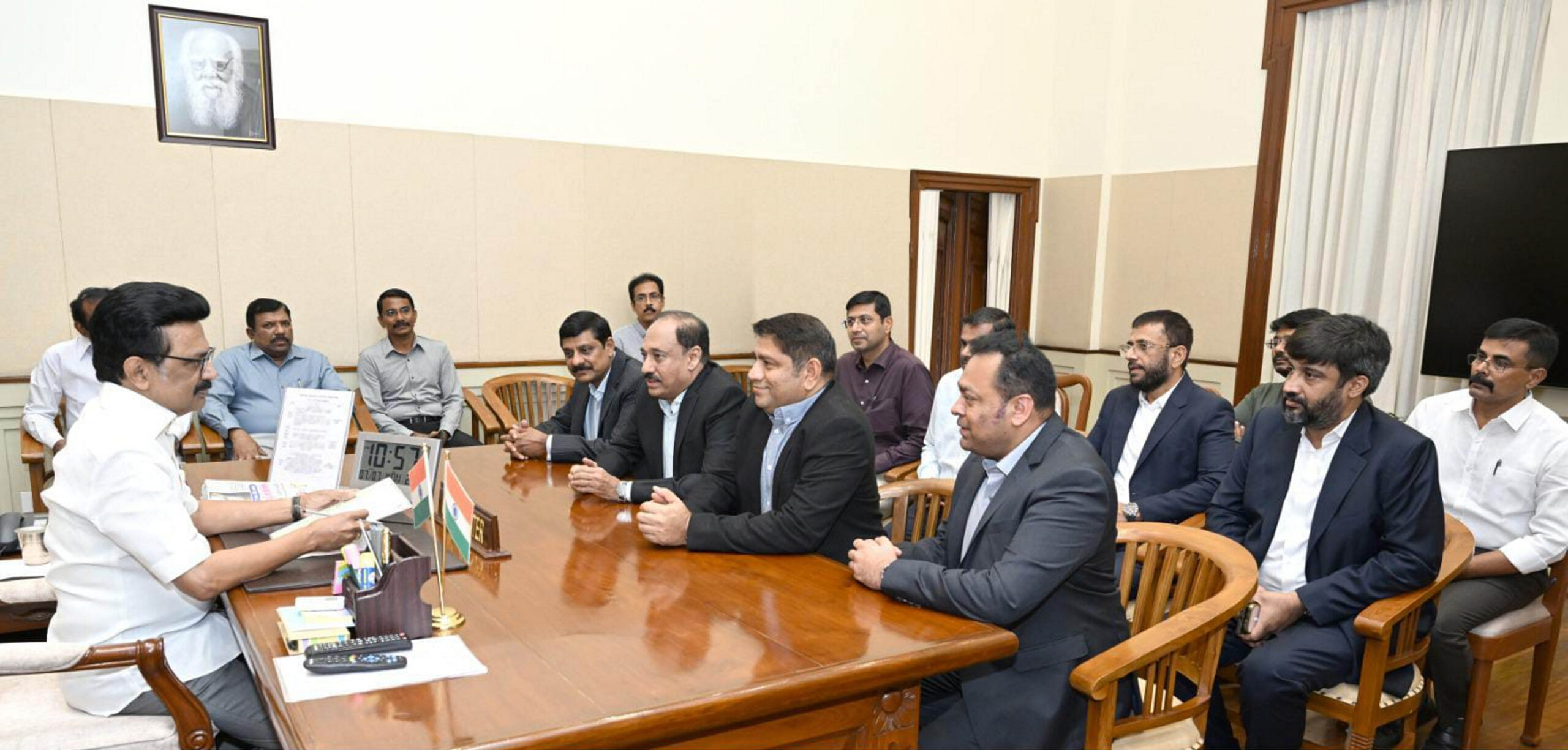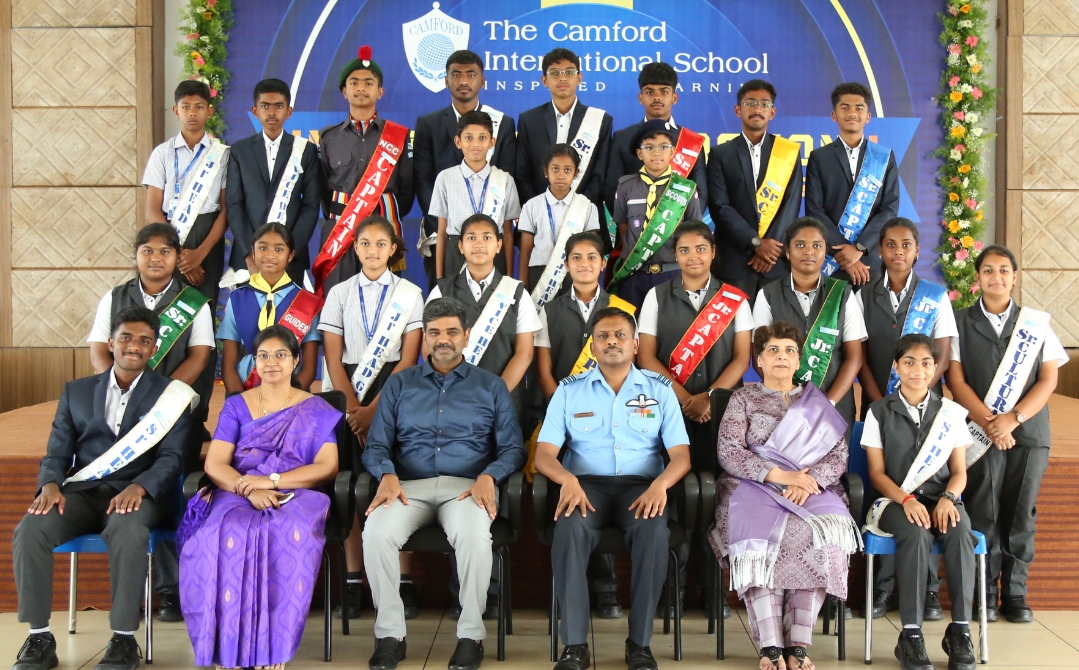Trending Now
- “I will soon make an announcement regarding a statewide tour across Tamil Nadu.” – O. Panneerselvam.
- Vatsala, Asia’s oldest elephant, has passed away at Panna Tiger Reserve; social activists mourn the death of this elephant, which lived for over 100 years.
- “The U.S. Govt earned ₹8 lakh crore this year through increased tariffs on foreign goods.” – U.S President Donald Trump.
- World No.1 Aryna Sabalenka has advanced to the semifinals in the Women’s Singles category at Wimbledon Tennis.
Coimbatore
Russian scientists hold meet in Coimbatore on water management
![]() November 27, 2018
November 27, 2018
Coimbatore : Scientists from Russian Academy of Sciences on Tuesday said several of their water management practices had great relevance in the Indian context.
Four scientists from the academy and one from Environment Canada are here to participate in a two-day India-Russia Consultation on ‘water management for human welfare and environment protection’ at Karunya Institute of Technology and Sciences here.
Highlighting the issues related to Moscow water supply depending on surface water systems based on Moscow, Vazuaza and Volga rivers, Dr Polyianin Vladislav Olegovich of the Water Problem Institute of the academy said it was interesting that several of their practices had relevance to the urban water supply schemes in India.
The academy had established a scientific data collection network to monitor continuously water quality changes, identify and eliminate sources of pollution and adhere to water quality standards.
They had evolved scientific operation rules to contain flood waters and ensure reliable water supply, Polyanin said. If such provisions were practised in India, the devastation caused by Chennai and recent Kerala floods could have been reduced.
He said efficient short and long-term rainfall forecasting systems would be of great use in operating these reservoirs in an efficient manner. The waters from Vizuza drained into the Volga and the waters were often pumped into the Moscow river slope during periods of scarcity, he noted.
Such simple inter-basin transfers had relevance in Indian context, especially in Coimbatore schemes from different river systems. The concept of maintaining environmental flow was gaining momentum in India to dilute pollutant load and maintain the aquatic flora and fauna downstream, he said.
Dr Rajasekara Murthy, Emeritus Scientist of Environment Canada highlighted the management of Great Lakes of North America, in which he was involved during the past four decades. Institute Vice-Chancellor and water expert Dr EJ James highlighted the water management problems in India and said more than 60 per cent of the population did not have basic sanitation facility and more than 80 per cent of the municipal waste water joined the freshwater streams without any treatment.























